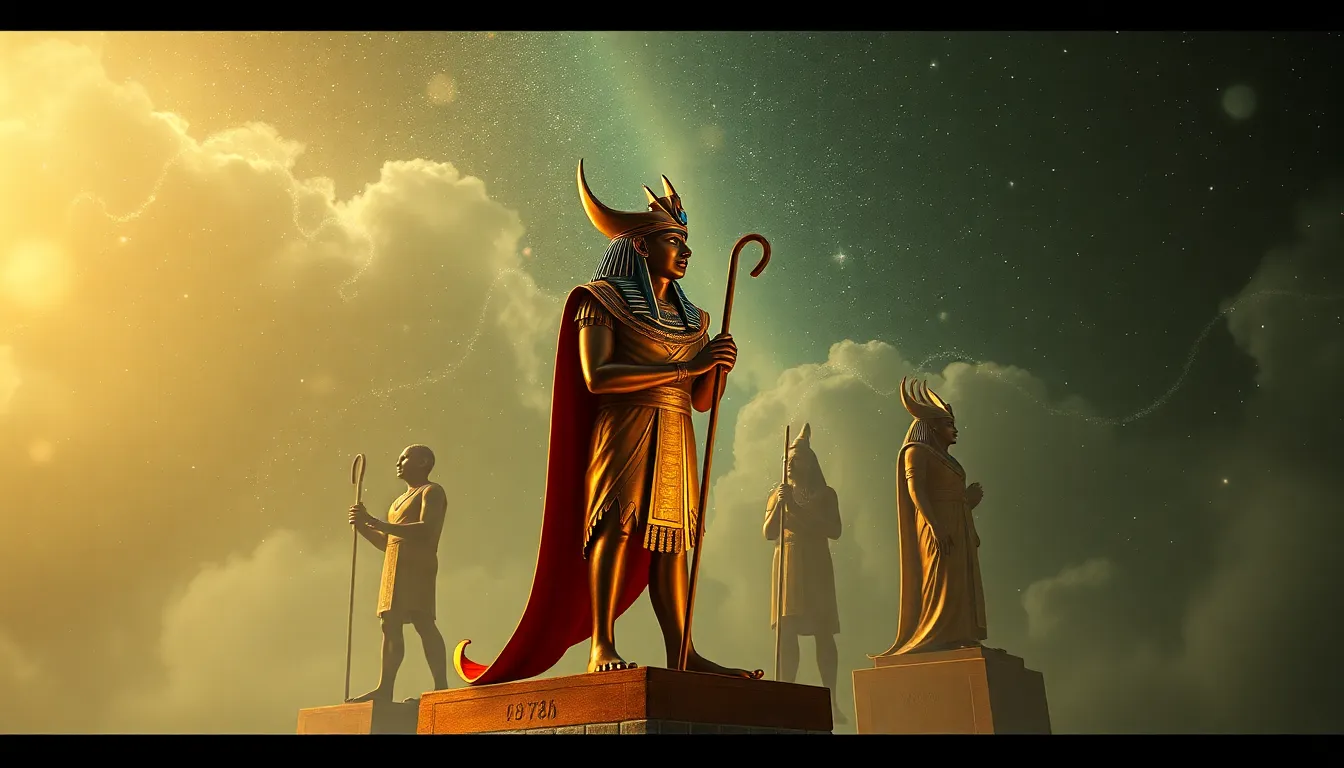The Importance of Rituals in Maintaining Cosmic Order
I. Introduction
Rituals are structured, symbolic actions often performed in a specific context, serving various purposes across different cultures and religions. They embody practices that connect individuals to the larger cosmic order, emphasizing the relationship between humanity and the universe. The concept of cosmic order refers to a harmonious arrangement of the universe, where every element has its place and purpose, contributing to the balance of existence.
This article explores how rituals contribute to maintaining cosmic order across various cultures and beliefs. By examining historical contexts, psychological impacts, religious practices, cultural variations, modern relevance, and the challenges faced by rituals, we will gain insight into the profound significance of these practices in human life.
II. Historical Context of Rituals
Rituals have their roots in ancient civilizations, where they often stemmed from spiritual beliefs and the need to explain natural phenomena. Early humans performed rituals to appease deities, ensure successful hunts, or mark significant life events. These early practices laid the groundwork for more complex systems of belief and ritualistic behavior.
Over time, rituals evolved alongside human societies, adapting to new cultural contexts and changing social structures. They became integral to communal identity, marking the passage of time, seasons, and human experiences. The role of rituals in societal structures is evident in their use to reinforce norms, values, and hierarchies, creating a cohesive social fabric.
III. The Psychological Impact of Rituals
Rituals serve as a source of comfort and stability, particularly in times of uncertainty. They provide individuals with a sense of predictability, allowing them to navigate life’s challenges with greater ease. The repetitive nature of rituals can induce a calming effect, reducing anxiety and fostering a sense of control over one’s environment.
Additionally, psychological theories, such as the theory of symbolic interactionism, explain the significance of rituals. This perspective highlights how individuals derive meaning from their interactions and the symbols associated with rituals, reinforcing their importance in maintaining a sense of order and understanding in a chaotic world.
IV. Rituals in Religious Practices
Across major world religions, rituals play a pivotal role in expressing spiritual beliefs and fostering community cohesion. From daily prayers in Islam to the Eucharist in Christianity, these practices embody the connection between the sacred and the mundane.
Some notable rituals that symbolize cosmic order include:
- The Hindu festival of Diwali, symbolizing the victory of light over darkness.
- The Jewish Passover, commemorating liberation and the establishment of order through divine intervention.
- The Native American Sun Dance, which connects participants to the life-giving forces of the universe.
These examples illustrate how rituals serve as a bridge between the human experience and the cosmic order, reinforcing the belief in a harmonious universe.
V. Cultural Variations in Ritual Practices
Rituals manifest uniquely across cultures, yet they share universal themes in their purpose of maintaining order. For instance, many cultures have harvest festivals that express gratitude to the earth and its cycles, reinforcing the relationship between humans and nature.
In a comparative analysis of rituals, we can identify common elements such as:
- Rites of passage marking significant life transitions.
- Seasonal celebrations that honor agricultural cycles.
- Funeral rites that acknowledge the cycle of life and death.
Local traditions contribute to a sense of cosmic balance, emphasizing the interconnectedness of all beings and the importance of community in maintaining that balance.
VI. Modern-Day Rituals and Their Relevance
In contemporary society, rituals continue to hold significance, adapting to the needs of modern life. They often serve as anchors in an increasingly complex world, providing meaning and connection amidst rapid change.
Examples of modern rituals that serve cosmic purposes include:
- Annual family gatherings that reinforce familial bonds.
- Community events that celebrate cultural heritage and identity.
- Personal rituals like meditation or yoga that promote inner peace and alignment with the universe.
These practices highlight the adaptability of rituals, showcasing their enduring relevance in fostering a sense of order and belonging.
VII. Challenges to Rituals and Cosmic Order
Despite their importance, rituals face challenges in the modern world. Globalization has led to the erosion of traditional practices, as cultural homogenization diminishes unique identities. This can result in a disconnection from local customs that contribute to cosmic order.
Changing societal values also affect ritual practices. As secularism rises, many individuals may forgo traditional rituals, leading to a fragmentation of community bonds and a weakening of societal structures.
The consequences of diminishing rituals can be profound, potentially leading to a loss of connection to the cosmic order and a sense of imbalance in individuals and communities.
VIII. Conclusion
In conclusion, rituals are vital in maintaining cosmic order, providing individuals and communities with structure, meaning, and connection. They encapsulate humanity’s quest for understanding and harmony in a complex universe. As we move forward, it is crucial to recognize the significance of rituals in our lives and strive to preserve and adapt them to our changing contexts.
The future of rituals lies in their ability to evolve while remaining rooted in their core purpose—fostering a sense of balance and order amidst the chaos of existence. Ultimately, the necessity of rituals in human experience underscores our inherent desire for connection, stability, and understanding in a vast and intricate cosmos.




